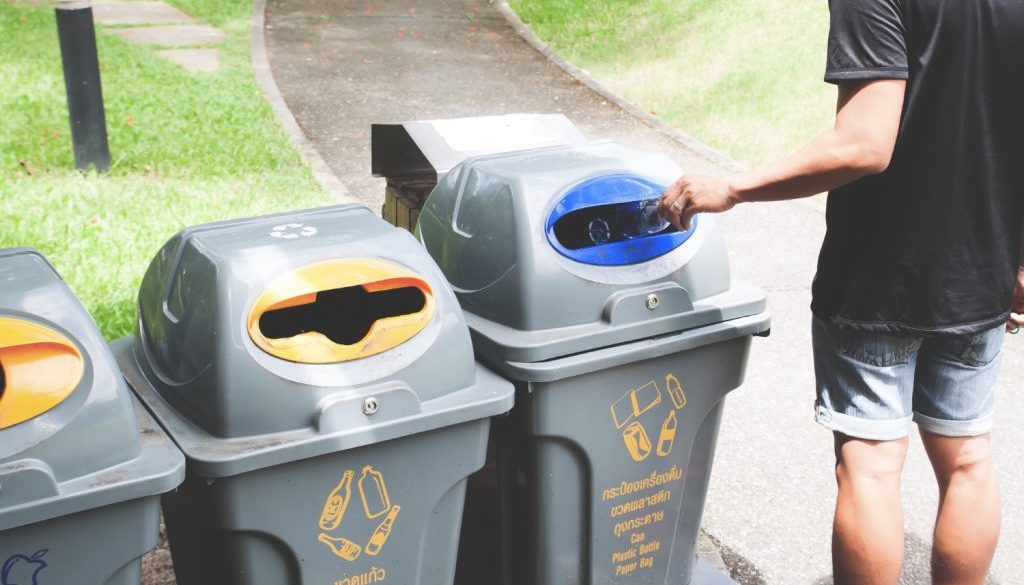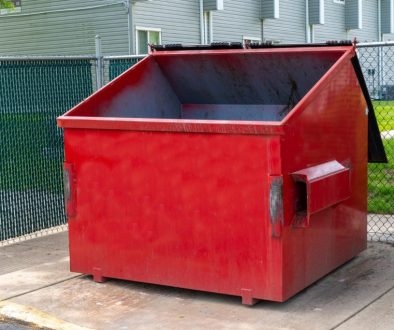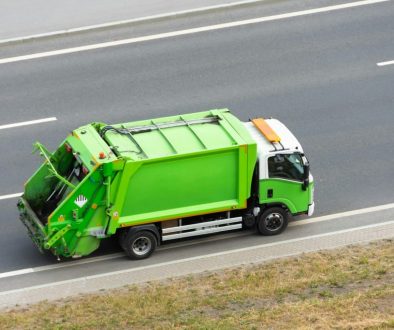Recycling is a key part of reducing negative environmental impact. By sorting the rubbish correctly, we ensure that recyclable materials are processed efficiently, reducing the amount of waste that ends up in landfills. Mismanaged rubbish can cause pollution and harm wildlife, so it’s important to get it right. With just a bit of effort, you can make a big difference.
In this article, we’ll look at the basics of recycling, how to separate your rubbish efficiently, common mistakes to avoid, and the importance of correctly disposing of hazardous waste. By following these guidelines, you can contribute to a cleaner, healthier planet.
Understanding the Basics of Recycling
Recycling is an essential process that helps convert waste materials into new, useful products. It plays a major role in reducing the amount of waste that ends up in landfills, conserving natural resources, and protecting the environment. To get started with recycling, it’s important to know what materials can be recycled and how they should be handled.
Common recyclable materials include paper, cardboard, glass, metals, and certain plastics. Each type of material has its own recycling process. For instance, paper and cardboard can be turned into new paper products, while glass can be melted down and reformed into new glass items. Metals like aluminium and steel can also be recycled to make new metal products. Certain plastics, labelled with recycling symbols and codes, can be reprocessed into new plastic items.
Recycling starts at home by sorting these materials correctly and ensuring they are free from food residues and other contaminants. Clean and separated recyclables are more likely to be efficiently processed and turned into new materials, rather than being discarded due to contamination.
How to Separate Your Rubbish Correctly
Properly separating your rubbish ensures that recyclables are effectively processed and non-recyclables are correctly disposed of. Here’s how to do it:
1. Paper and Cardboard: Place clean paper, newspapers, magazines, and cardboard in your recycling bin. Flatten cardboard boxes to save space. Avoid recycling paper with food stains or wax coatings, as these can contaminate the recycling process.
2. Glass: Separate glass bottles and jars by colour if required by your local recycling programme. Rinse them out and remove any lids or caps. Do not include broken glass, windows, or light bulbs, as these require special handling.
3. Plastics: Check the recycling symbols on plastic containers. Numbers 1 and 2 are commonly recyclable. Rinse them out and remove any labels, if possible. Avoid recycling plastic bags, as these often require separate collection points.
4. Metals: Rinse out aluminium and steel cans and place them in your recycling bin. Some areas may also accept metal lids and foil, but check local guidelines. Do not include items like batteries or electronics which need special disposal.
5. Organics and Food Waste: If you have access to a composting programme, separate food scraps and organic waste. Composting turns organic waste into valuable soil, reducing the amount of rubbish that goes to landfills.
By following these steps and checking local recycling guidelines, you can ensure your rubbish is correctly sorted, making the recycling process more efficient and effective. This not only helps the environment but also supports the recycling industry by providing clean, usable materials.
Common Mistakes to Avoid When Sorting Rubbish
Even with the best intentions, it’s easy to make mistakes when sorting rubbish for recycling. Here are some common errors and how to avoid them:
1. Contaminating Recyclables: Rinsing out containers is crucial. Food residue on recyclables can contaminate entire recycling batches, causing them to be rejected. Always rinse bottles, cans, and containers before placing them in the recycling bin.
2. Mixing Materials: Different materials need to be recycled separately. For instance, paper and plastic should never be placed in the same place. Combining items can lead to contamination and difficulties in the recycling process. Follow local guidelines for separating materials properly.
3. Recycling Non-Recyclable Items: Items like plastic bags, polystyrene, and certain plastics are often non-recyclable via kerbside collection. These items require special handling or drop-off points. Including non-recyclable items in your recycling bin can ruin batches and increase sorting costs.
4. Failing to Break Down Cardboard: Large cardboard boxes should be flattened to save space and make transportation easier. Unflattened boxes can clog recycling machinery and are more challenging to process.
Avoiding these mistakes ensures that your recyclables are processed efficiently and supports the recycling system. Proper sorting reduces waste and maximises the benefits of recycling.
Importance of Proper Disposal of Hazardous Waste
Hazardous waste includes items that can harm your health and the environment if not disposed of correctly. This type of waste includes batteries, paint, chemicals, and electronic items. Proper disposal is vital to prevent pollution and protect both people and wildlife.
To dispose of hazardous waste correctly, never throw it in your general rubbish or recycling bin. Instead, take advantage of local hazardous waste collection services, which are designed to handle these items safely. Many areas have designated drop-off points or special collection days for hazardous materials.
When preparing hazardous waste for disposal, ensure all containers are sealed and labelled clearly. This prevents leaks and makes it easier for waste management professionals to handle the items safely. Additionally, some hazardous waste, like batteries and electronics, can be recycled. Check for local recycling programmes that accept these items and follow their guidelines.
Conclusion
Sorting your rubbish for recycling might seem daunting at first, but it’s an essential step towards a cleaner, more sustainable environment. By understanding the basics of recycling, correctly separating materials, avoiding common mistakes, and ensuring proper disposal of hazardous waste, you can make a significant impact. Proper sorting not only supports recycling efforts but also conserves natural resources and reduces pollution. It’s a small effort with substantial benefits for the planet.
At Enviro Skip Hire, we are committed to helping you manage your waste effectively. If you need assistance with your waste disposal needs, consider our reliable skip hire services. Whether you’re tackling a home renovation, garden clearance, or just need to get rid of waste, we have the perfect solution for you. Book your skip hire in Cheshire today.




